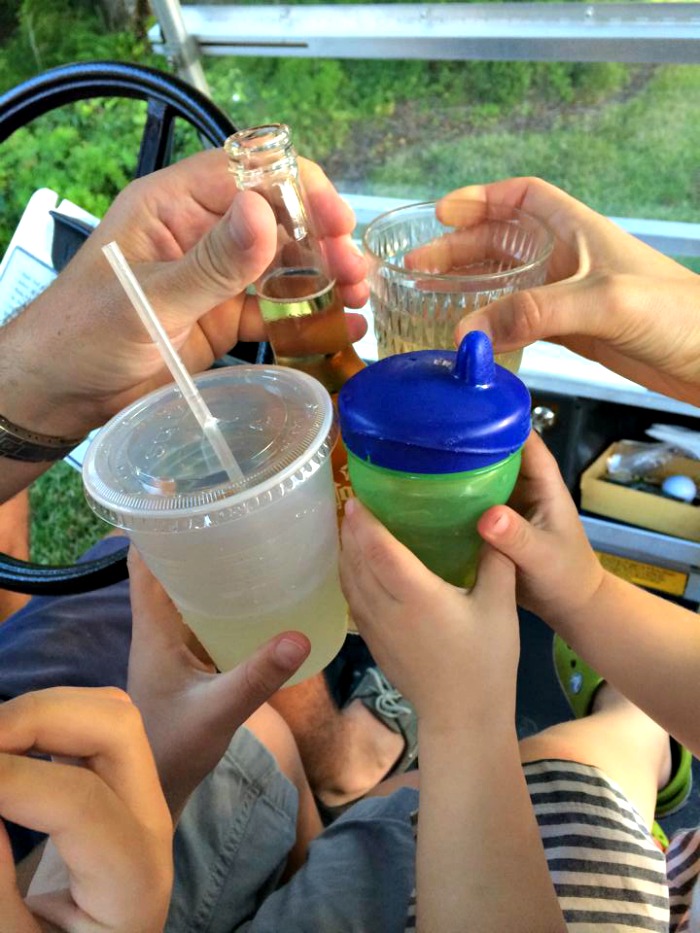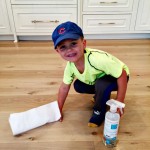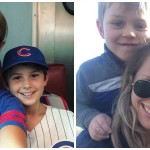 Kids and alcohol. A terrifying thought, right? In the early phases of mothering you feel like nothing could be harder than severe sleep deprivation (rightfully so, that is no picnic). Yet then your little one blossoms and grows right before your very eyes and reaches the ripe old age of nine, which is precisely the age the American Academy of Pediatrics (AAP) says children become very aware of alcohol and the roll it can play in their life. And just like that, I fast forward to the teenage years and I’m quite certain that nothing is harder than a mom being home when her son/daughter is out at a possible party with possible drinking and possible driving. Terrifying.
Kids and alcohol. A terrifying thought, right? In the early phases of mothering you feel like nothing could be harder than severe sleep deprivation (rightfully so, that is no picnic). Yet then your little one blossoms and grows right before your very eyes and reaches the ripe old age of nine, which is precisely the age the American Academy of Pediatrics (AAP) says children become very aware of alcohol and the roll it can play in their life. And just like that, I fast forward to the teenage years and I’m quite certain that nothing is harder than a mom being home when her son/daughter is out at a possible party with possible drinking and possible driving. Terrifying.
But hey, there is some good news here. The good news is that the overall number presented by the AAP represents a decline in the number of kids drinking, and research shows that kids are less likely to drink if a parent has spoken with them about not doing so. Ok, ok. We can do that, right? Here are some tips and pointers I’ve gathered and plan on using in our own home. I realize there is no perfect way to navigate all this, but, I think by starting off with information and a plan it can’t hurt. Let’s do this!
Start early.
Like stated above, children become very aware of alcohol between the ages of 9 (yes, 9) and 13. So being aware that they are aware is key. They soak up everything, as we already have learned during the toddler years. Highlighting alcohol in what can be a positive and safe way is a wonderful start. I often have a glass of wine while I cook and will often cook with the wine which is a healthy way to highlight a good relationship with alcohol. Commenting that a certain wine goes great with a certain type food or that fresh lime juice squeezed for margaritas is the best are other good examples. Phrases like ‘I need a drink because I’m so stressed’ ‘or ‘now it’s time to have some fun’ sends the message alcohol is a stress relief or a way to have a good time which is not what you want young and impressionable minds to hear.
Use your pediatrician as a resource.
I can tell L a billion times to eat green vegetables but somehow it rings stronger when his childhood doctor of nine years says it to him. This is a doctor after all, not just mom repeating herself over and over and over again. The AAP recommends starting these conversations during their well physicals beginning at age 9. Noted.
Don’t make it taboo.
Look, even if it’s not in your own home, alcohol is out there and it’s naive to think that a bubble can be formed protecting your growing ones from it. I grew up in a dry home. I can’t ever remember my mom or dad having a drink, it was just not apart of their lifestyle. That being said, it was never spoken of in a scary or negative or threatening way. There was no part of me that thought it would be cool to rebel and try something my parents didn’t do. Alcohol, if used correctly at the proper age, isn’t….bad. It’s not poison. We’ve even (gasp!) had L try a few sips once or twice just to downplay the ‘mystique’ of it all.
Drinking and driving: lead by example.
As parents, we should all agree drinking and driving is a very serious and very important matter. It should be obvious to us all at this point. Yet it’s not obvious to the young, impressionable mind. I make it a point to say things out loud like ‘no, more for me, I have the kids and I’m driving’ if we are out at a social event to showcase that as a healthy decision. Your child, at 9, can see you ordering multiple drinks at dinner and then put it together that you drove home. Not cool. Say things out loud like ‘no more for me’ or ‘mom will drive she didn’t have anything to drink’ so that they see that you take it seriously yourself.
Make connections with your kids friends and family.
One of my favorite parts about nine years old is seeing the lasting connections L has made over the years. He has a wonderful, wonderful, network of boys that are not only important to him but important us. We love his friends. We want to know his friends. His friends are in our home, a lot. We take it even a step further and want to know the parents. This comes natural to us a we are an entertaining family. Come on over. Most, if not all, our social plans revolve around the kids and their friends and their families and the end result of that is a very large network of people I not only like and enjoy, but trust. I know if L is at so and so’s home he is safe. I know the moms that will check in on things and be a positive presence for my son(s) and I plan on continuing to be that for theirs year after year. When L is a sophomore in high school and has his buddies over you bet I am that mom that is checking in, with fresh homemade cookies of course just to be a tad less embarrassing.
Continue to build up their confidence.
Self esteem is huge, huge, when it comes to drinking. I am so thankful that L has a natural tendency to be a rule follower and to make thoughtful non impulsive decisions. Combine that with his growing self confidence and the ability to lead I feel like we are on a pretty strong path for him and those around him. Yet you can never be too sure and something as simple as saying ‘I love you’ to them, out loud, daily are important. I think I tell each my boys that 20 times a day. It’s on repeat around here because I need them to understand just how important they are. I am hopeful it will sink in and stick and surface at times in the future that may be dicey for them.
Encourage dedication to sports and/or activities.
This is an obvious one. Being apart of a team that has a strict no drinking no drugs policy helps your son or daughter understand an outlook that is bigger than themselves. Trying that drink not only lets themselves and their parents down, but, it lets down their coach. Their team mate. Their best friend. And that’s a pretty rough place to end up. We will strongly encourage sports and team efforts and anything else these two crazy boys may want to do until the end.
Learn from your mistakes.
Or your husbands. (I honestly didn’t drink until college and even then it was very, very little). M has a different story to tell and would lay more on the other side when it came to experimenting with it all. He so agrees all of the above mentioned points play a huge roll and one more important point he noted from growing up was how easy it was, in our community, to hide things. We have large homes on large estates around here. Even if mom or dad are home, that doesn’t necessarily mean the kids are being looked after three acres deep into the woods by a bonfire. Again, establishing these friendships and connections early help build that trust about the home your child may be in.
Look, there is no guarantee to this parenting thing. You may do all of the above and more and things could go either way. Yet taking the time to educate yourself can’t hurt at all. For all of those approaching or in the 9-10-11-12+ age range, I’m right there with you and doing the best I can to establish these healthy concepts in our day to day lives. Praying all our little ones stay safe!
If you liked this post, check these out!
Courtney
Latest posts by Courtney (see all)
- Roasted Bruschetta Salmon - August 30, 2018
- Four hour Bolognese - August 28, 2018
- Summer sandwiches - July 25, 2018





Twitter: charminglyuncmp
says:
This is such a great topic. We actually have a similar dynamic in that I can count on one hand the number of times I saw my dad drink a beer growing up and we never had anything at home. S’s family is the EXACT opposite. It totally makes sense that 9 is about the time to begin actual conversations but also makes sense that good behavior is modeled so much earlier. All very good food for thought!